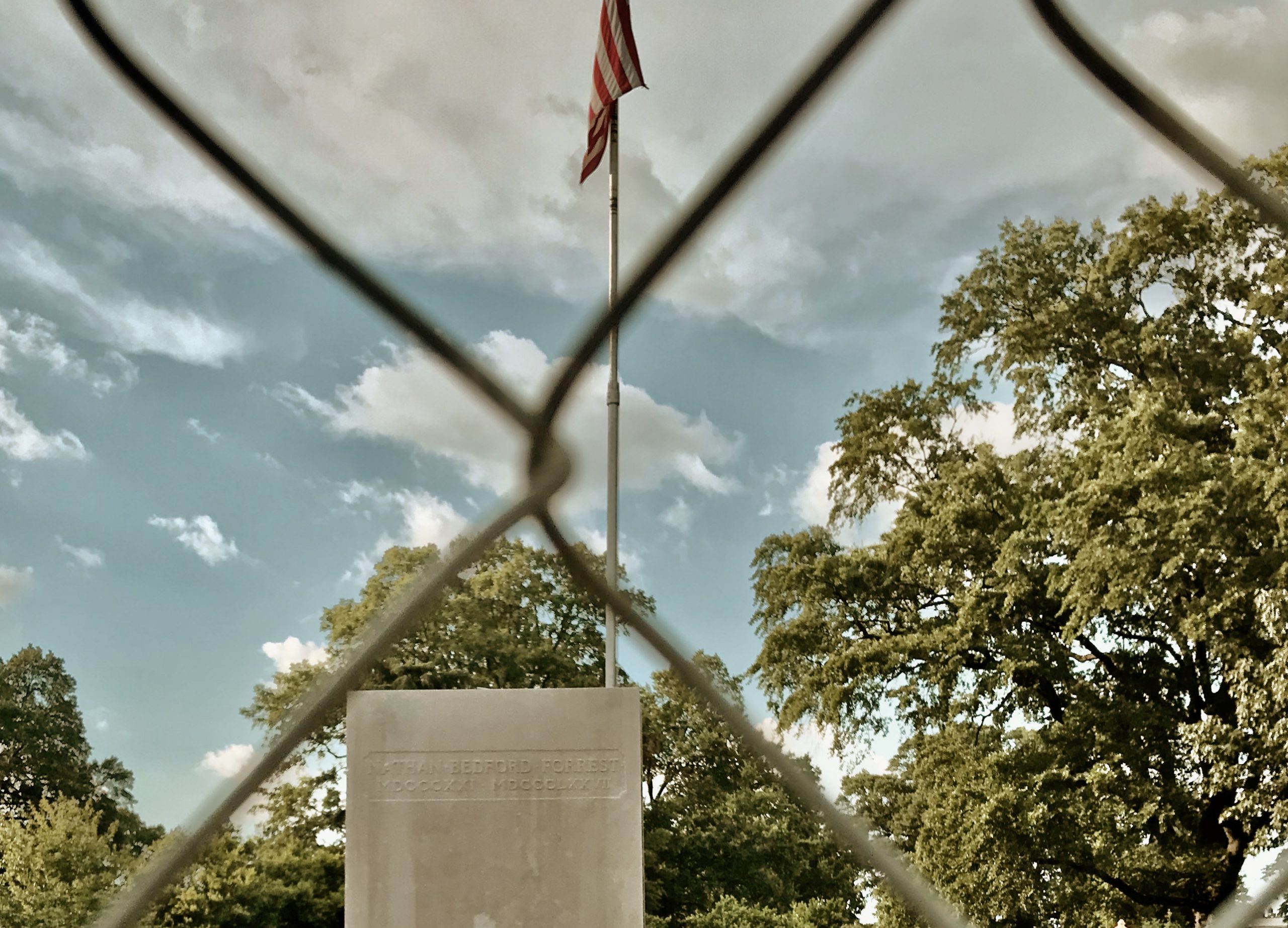By G. Wayne Dowdy
Responding to the ongoing injustices experienced by black Americans, your correspondent pens a letter to Colonel John McLeod Keating, managing editor of the Daily Appeal newspaper in post-Civil War Memphis.
Dear Colonel Keating:
In my previous letters I have described the COVID-19 public health crisis, but today I want to talk about a virus spread by white people that has sickened our souls and killed black people for hundreds of years.
When our ancestors brought Africans here to live and work as slaves, they found themselves in a moral quandary. In order to live with their contradiction of preaching liberty for all men while keeping some men in cruel bondage, they developed lies about black people that have persisted for centuries. Chief among these that black people are inferior savages, prone to criminality, laziness, and dull thinking. This made white people feel good, especially when they offered kindness to their slaves.
The generation that fought the Civil War and bungled Reconstruction, your generation, did not create those myths, but did little to combat them. I know that you defended the honor and integrity of black Memphians during the yellow fever epidemic, and I give you great credit for that. However, I also know that you were a staunch supporter of the Confederacy, a believer in white supremacy and accepted without question the myth of black inferiority. Despite being a gentleman, you promoted those lies and devoted yourself to perpetuating the Lost Cause of the Confederacy.
The ideology of the lost cause – the belief that noble Confederate soldiers were merely defending state’s rights against a rapacious North, and slavery had nothing to do with it – dominated the thinking of the white South well into my adulthood. As a boy I was obsessed with the Civil War. I wore a Confederate soldier’s cap for many years while reading and watching anything related to the war as well as forcing my parents to take me to nearby battlefields. I was proud to learn that my great-great grandfather, Private William B. Dowdy, was severely wounded in the foot defending Atlanta from the Yankees.
Every white person I knew identified with the Confederate South. The only subjects we talked about more were God and the weather. Whenever someone dared to suggest removing Confederate monuments, I bristled and planted my feet in defiance.
In June of 2015 a white supremacist walked into a black church in Charleston. South Carolina, sat among the worshippers as they studied the Bible, and shot nine of them dead. Brutality such as this is beyond the reasoning of most of us, but for many this particular crime struck at the heart of Southern culture – the church and the symbols of the Confederacy. It may seem hypocritical that white Southerners could worship God while revering a government dedicated to keeping His children enslaved, but it was a contradiction we had long made peace with. Is that not right, Colonel Keating?
For the first time in my life, the true nature of these symbols became apparent to me. I realized that if I stood with the flags and statues of the Confederacy, I was standing with the killer and every other white supremacist and Nazi in the land. That I would no longer do. For me, the Civil War came to an end in Charleston, South Carolina, the same place it began in 1861.

As my long-held beliefs were altered, I was asked by Memphis Mayor Jim Strickland’s administration to research the history of the Nathan Bedford Forrest monument in order to remove it, I also worked with the city council attorney in preparing an affidavit, in my name, arguing for removal. Soon after, I was deposed by an attorney representing the Forrest family. When we began, the attorney declared he would not attempt to trap me with loaded questions – then he proceeded to do just that. At one point he asked me if I was aware of the many things General Forrest had done for black people. Some I did and some I did not.
When he was done he asked, “He was quite a man, wasn’t he?” “He was a man,” I replied.
On December 20, 2017 the city took down the Forrest monument. I no longer bristled. And my feet are now planted on the soil of understanding.
Colonel, you may not like it, but I plan to write more about the racism buried in the hearts of white people and what that does to our black neighbors.
That’s that way Memphis is … on June 10th in the year our Lord two thousand and twenty.
I remain,
Your faithful correspondent
G. Wayne Dowdy


Keep speaking the truth. You speak for so many of us.
Here here
Excellent! One thing I fear in the push to remove the trappings of the Confederacy is that we will forget history. And we know that those who forget are doomed to repeat. Also I’m afraid that, by what some would say, dishonoring those who fought on the Confederate side might push them back to the group who would vote for our current president. I’ve lately seen rude remarks about “the North” and “the South”. We don’t need another excuse to further divide this country.